No man is an island
Freiburg, Sep 21, 2018
At the University of Freiburg, the exchange of ideas in regional, European and global networks has become commonplace for researchers as well as for administrative staff and students. However, this cooperation has taken on a new dimension in Freiburg since the University has made common thinking and work in targeted networks the guiding principle of its development. “Connecting Creative Minds - Trinational, European, Global” is the motto for University’s future development. Verena Adt went on campus to ask researchers, staff and students what the guiding idea of their work is.
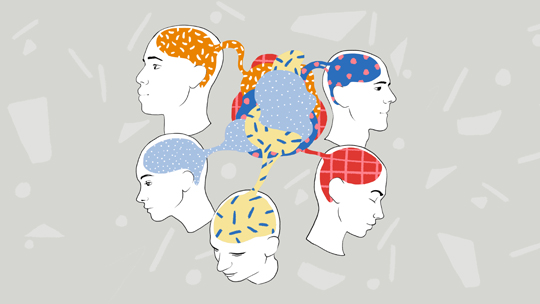 Illustration: Svenja Kirsch
Illustration: Svenja Kirsch
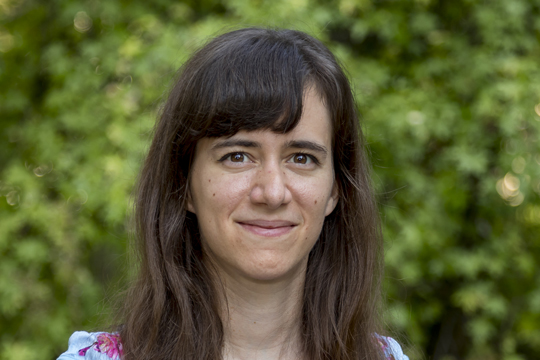
“No man is an island. You can conduct more effective research when you are connected to, work with and learn from other scientists. That was also one of the reasons why I wanted to return to Germany at the end of 2015 after my time as a postdoc in the US: I had the impression that networks were being developed here much more systematically. Then I also learned that young scientists here are actively supported by the networks, for example, when they first have to apply for funding or hire staff. Networking with the administration and students is also helpful for practical reasons. I think it’s good that the University of Freiburg is openly committed to the motto ‘Connecting Creative Minds’ and has shown that it consciously places value on it.”
Dr. Julia Jellusova is junior group leader at the Cluster of Excellence BIOSS Center for Biological Signaling Studies and at the Institute of Biology III. Photo: Ingeborg F. Lehmann
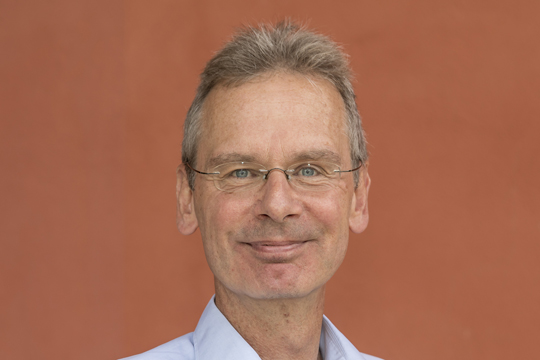 “As a faculty assistant at Faculty of Engineering, I have an interface function in supporting research and teaching. This means that I have to deal with complex issues and structures and with people at all levels. These are not only people from our own faculty and from the university, but also from non-university research institutions such as the Fraunhofer Institutes and industry partners with whom we have an exchange. Because of my role, I am the point of contact for everyone, and I have already brought many different creative minds together. Being together is very important. I am convinced that many challenges can only be solved together. The University’s motto has a claim to be trinational, European and global, thereby adding another level of excitement. I am pleased that we can work together with other colleagues from the universities from the European Campus and learn from each other. It is very important to accompany this idea and fill this vision with pragmatic approaches from the faculty.”
“As a faculty assistant at Faculty of Engineering, I have an interface function in supporting research and teaching. This means that I have to deal with complex issues and structures and with people at all levels. These are not only people from our own faculty and from the university, but also from non-university research institutions such as the Fraunhofer Institutes and industry partners with whom we have an exchange. Because of my role, I am the point of contact for everyone, and I have already brought many different creative minds together. Being together is very important. I am convinced that many challenges can only be solved together. The University’s motto has a claim to be trinational, European and global, thereby adding another level of excitement. I am pleased that we can work together with other colleagues from the universities from the European Campus and learn from each other. It is very important to accompany this idea and fill this vision with pragmatic approaches from the faculty.”
Dr. Rainer Giersiepen is a faculty assistant at the Faculty of Engineering.
Photo: Ingeborg F. Lehmann
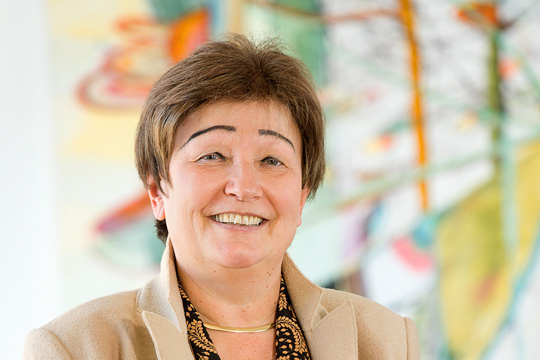 “Universities are first and foremost about creative minds: all the different players from teaching, research, administration and the student body. The task of the university is to contribute to applying this creativity in the best way possible. The topics that concern us today are often global in nature - whether we are talking about sustainable development goals or renewable energy. No researcher, university or country can solve these questions on its own. That’s why we need global networks. This is expressed by the term ‘connecting.’ The University of Freiburg has set this strategy for itself through three concentric circles: Trinational in the Eucor space - Freiburg has already made great strides with its partners in this area. Then in Europe - there is a big European program for the creation of European universities, which is also in Freiburg. The third circle is a global one. Universities now network more strategically than they used to. It is no longer about having as many partners as possible, but rather identifying the right people who fit in with your own profile. Freiburg is well on its way in this area too. For one, the motto reflects what the tasks of the universities are very well, but it also makes it clear how Freiburg is strategically positioned for the coming years.”
“Universities are first and foremost about creative minds: all the different players from teaching, research, administration and the student body. The task of the university is to contribute to applying this creativity in the best way possible. The topics that concern us today are often global in nature - whether we are talking about sustainable development goals or renewable energy. No researcher, university or country can solve these questions on its own. That’s why we need global networks. This is expressed by the term ‘connecting.’ The University of Freiburg has set this strategy for itself through three concentric circles: Trinational in the Eucor space - Freiburg has already made great strides with its partners in this area. Then in Europe - there is a big European program for the creation of European universities, which is also in Freiburg. The third circle is a global one. Universities now network more strategically than they used to. It is no longer about having as many partners as possible, but rather identifying the right people who fit in with your own profile. Freiburg is well on its way in this area too. For one, the motto reflects what the tasks of the universities are very well, but it also makes it clear how Freiburg is strategically positioned for the coming years.”
Dr. Dorothea Rüland is General Secretary of the German Academic Exchange Service, alumna of the University of Freiburg and member of its university council. Photo: Thilo Vogel
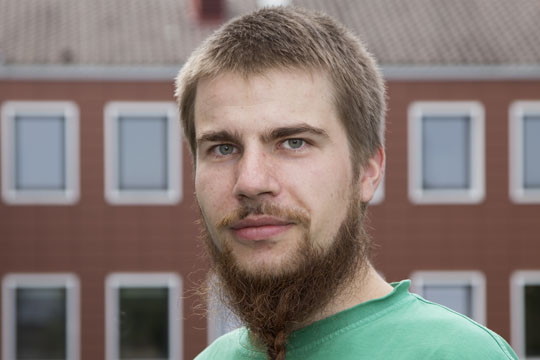 “Basically, I see the promotion of networked work as an essential task that universities have. Especially in mathematics, where a lot of creativity is needed, it can be incredibly helpful to talk to other people who work in the field or in neighboring disciplines. In terms of personality development, of course, this applies to all subject areas. In our graduate program, we are particularly encouraged and funded with the goal of attending international conferences. There are enlightening moments when you ask someone a seemingly harmless question in conversation and then discuss it fully. Even if the person is not even an expert in the field. Even so, it is often difficult to seek an exchange if you are deeply immersed in the topic and it seems that there is not enough time for discussion and lecturing if you are uncertain beforehand whether it will be beneficial to you. We are often too rushed or lazy for it and then the opportunity has often been too rare anyway. Unfortunately, I am no exception. The fact that the University has now officially declared networked work to be its strategic vision may help a little to make more frequent and targeted efforts.”
“Basically, I see the promotion of networked work as an essential task that universities have. Especially in mathematics, where a lot of creativity is needed, it can be incredibly helpful to talk to other people who work in the field or in neighboring disciplines. In terms of personality development, of course, this applies to all subject areas. In our graduate program, we are particularly encouraged and funded with the goal of attending international conferences. There are enlightening moments when you ask someone a seemingly harmless question in conversation and then discuss it fully. Even if the person is not even an expert in the field. Even so, it is often difficult to seek an exchange if you are deeply immersed in the topic and it seems that there is not enough time for discussion and lecturing if you are uncertain beforehand whether it will be beneficial to you. We are often too rushed or lazy for it and then the opportunity has often been too rare anyway. Unfortunately, I am no exception. The fact that the University has now officially declared networked work to be its strategic vision may help a little to make more frequent and targeted efforts.”
Fabian Kertels is pursuing his doctorate in the Research Training Group “Cohomological Methods in Geometry” and is part of the working group for Mathematical Physics.
Photo: Ingeborg F. Lehmann
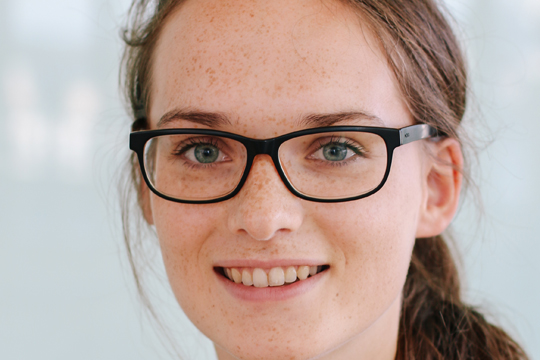 “As an employee of the Office of Strategy and Development, I have been working on the cross-border project of the European Campus since April 2017. I experience the motto ‘Connecting Creative Minds’ in my daily work life. At our strategy working group meeting, for example, which I co-organize, employees from various departments from all five universities from the European Campus meet. These are people with different cultures and different nationalities. It gives you a new perspective on things that you have to work out together. I think that the principle of ‘Connecting Creative Minds’ works on several levels: in cooperation with other universities, but also in collaboration between individual departments. For example, when it came to producing a flyer for the European Campus, the entire project team consulted one another. The principle also works in the field of cooperation in our own field of expertise. We first put all ideas on the table in a brainstorming session and later, when implementing an accepted proposal, everyone works together for an overall result that benefits from our different skill sets.”
“As an employee of the Office of Strategy and Development, I have been working on the cross-border project of the European Campus since April 2017. I experience the motto ‘Connecting Creative Minds’ in my daily work life. At our strategy working group meeting, for example, which I co-organize, employees from various departments from all five universities from the European Campus meet. These are people with different cultures and different nationalities. It gives you a new perspective on things that you have to work out together. I think that the principle of ‘Connecting Creative Minds’ works on several levels: in cooperation with other universities, but also in collaboration between individual departments. For example, when it came to producing a flyer for the European Campus, the entire project team consulted one another. The principle also works in the field of cooperation in our own field of expertise. We first put all ideas on the table in a brainstorming session and later, when implementing an accepted proposal, everyone works together for an overall result that benefits from our different skill sets.”
Berit Bröcker is responsible for the project “Eucor - The European Campus: cross-border structures” in the office of strategy and development. Photo: Sandra Meyndt
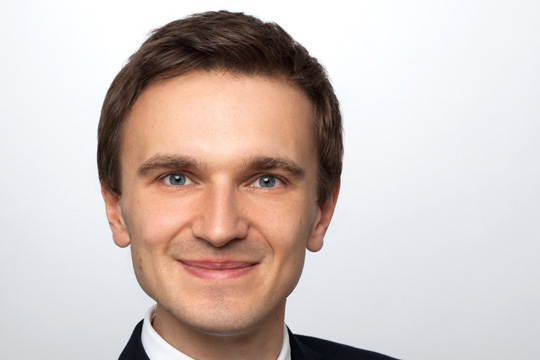 “A new level of quality can only emerge through new connections. I have experienced that myself in my career. Initially, I could not directly apply my preference for physics when I came to the Department of Urology at the University Medical Center as a young doctor. A groundbreaking experience for me was when I was allowed to spend a year with a scholarship at the Fraunhofer Institute for Physical Measurement Techniques in Freiburg. I wanted to do research as a physician in the fields of laser technology and spectroscopy, and the physicists had the technological background to do so. We complemented each other wonderfully, and I entered completely new networks. After that I was able to complete my habilitation quickly. As a result, the Department of Urotechnology was founded at the medical center, which I have been managing ever since. The challenge for me is to find suitable partners to create something new. That’s why I find this new motto very good for the University of Freiburg. It is essential that you leave the creative minds free space in which they can unfold. You should not try to impose something on them or create overregulated structures.”
“A new level of quality can only emerge through new connections. I have experienced that myself in my career. Initially, I could not directly apply my preference for physics when I came to the Department of Urology at the University Medical Center as a young doctor. A groundbreaking experience for me was when I was allowed to spend a year with a scholarship at the Fraunhofer Institute for Physical Measurement Techniques in Freiburg. I wanted to do research as a physician in the fields of laser technology and spectroscopy, and the physicists had the technological background to do so. We complemented each other wonderfully, and I entered completely new networks. After that I was able to complete my habilitation quickly. As a result, the Department of Urotechnology was founded at the medical center, which I have been managing ever since. The challenge for me is to find suitable partners to create something new. That’s why I find this new motto very good for the University of Freiburg. It is essential that you leave the creative minds free space in which they can unfold. You should not try to impose something on them or create overregulated structures.”
Prof. Dr. Dr. Arkadiusz Miernik runs the Department of Urotechnology at the urology clinic at the Freiburg University Medical Center. Photo: Arkadiusz Miernik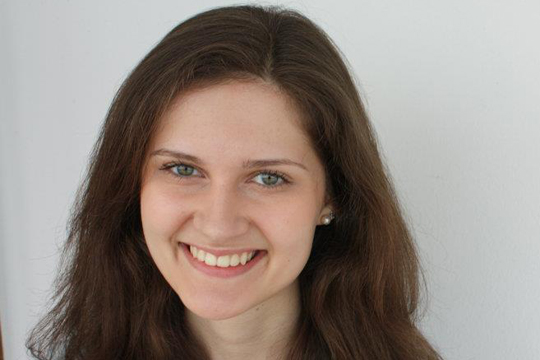 “The motto ‘Connecting Creative Minds’ appealed to me immediately. The proximity to France was a deciding factor for me to come to Freiburg for my Romance studies. I studied two semesters in Strasbourg in the Eucor program and that was a very positive experience. There I had contact with French and many other international students. When, later in Freiburg, I received an e-mail from the rector about the new strategic motto of the university, I used the opportunity to make suggestions. Above all, I thought of integrating the strategy into the Romance Studies mentoring program. I think it would be nice to network German students in Strasbourg and French students in Freiburg, for example through events. I also thought about sharing common email lists and partnerships for practicing the languages. I think that students would be happy to receive such offers in order to make contacts and develop friendships. I think it’s important to develop relationships across borders and build bridges.”
“The motto ‘Connecting Creative Minds’ appealed to me immediately. The proximity to France was a deciding factor for me to come to Freiburg for my Romance studies. I studied two semesters in Strasbourg in the Eucor program and that was a very positive experience. There I had contact with French and many other international students. When, later in Freiburg, I received an e-mail from the rector about the new strategic motto of the university, I used the opportunity to make suggestions. Above all, I thought of integrating the strategy into the Romance Studies mentoring program. I think it would be nice to network German students in Strasbourg and French students in Freiburg, for example through events. I also thought about sharing common email lists and partnerships for practicing the languages. I think that students would be happy to receive such offers in order to make contacts and develop friendships. I think it’s important to develop relationships across borders and build bridges.”
After completing her BA in Romance Studies, Julia Ernst has since started her master’s degree in “German as a Foreign Language” and works as a student assistant in the Romance Studies Mentoring Program. Photo: Sofia De Lorenzo
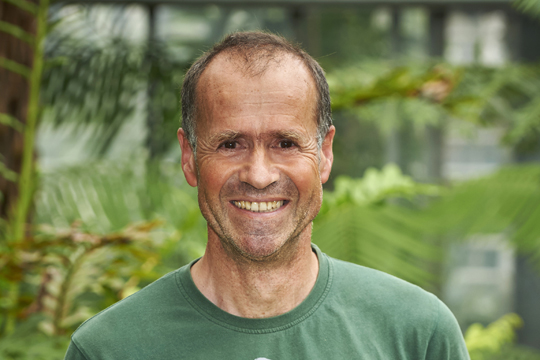
“I think a great deal about the motto 'Connecting Creative Minds'. That's because I’m a program director for Regio Chimica, the only bachelor program for chemistry nationwide with France. It is consistently binational and bilingual. Around ten years ago, we developed this bachelor’s degree program, which offers a German and a French dual German and French degree, together with the University of Mulhouse. A bi-national project that actually works trinationally because the chemistry area in Basel offers the appropriate employment market and is highly interested in our graduates. They have not only chemistry in mind: With intercultural teaching modules and especially through the study time in the other country, they have broadened their cultural horizons, gotten to know other ways of working and thinking and are multilingual. All of this gives them access to a different profile from that of the ‘normal’ chemist. It is triculturality incarnate. This is how European integration works and, ultimately, global networking. I am a man of conviction on this one.”
Harald Hillebrecht is a professor of inorganic chemistry.
Photo: University of Freiburg
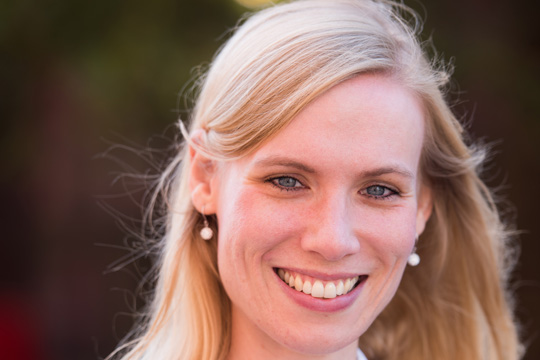 “For me, the motto ‘Connecting Creative Minds’ means bundling and bringing together the potential of individual scientists, moving away from isolation in the ivory tower towards working together and exchanging ideas - within and across one’s own discipline. Thinking in a group setting can be very beneficial, in the sense that the whole is more than the sum of its parts. I see the motto as a form of extended or collective intelligence that arises in and through exchange. I have always benefited from exchanging ideas, discussing ideas, trying things out. So I am also a big fan of open and explorative formats in my research that make this possible. Another aspect of 'Connecting Creative Minds' is the European and international dimension to bring together interesting minds. For this purpose, the Freiburg Institute for Advanced Studies (FRIAS) is a good example to which my research group is affiliated. It's easy to think and work in an interdisciplinary way.”
“For me, the motto ‘Connecting Creative Minds’ means bundling and bringing together the potential of individual scientists, moving away from isolation in the ivory tower towards working together and exchanging ideas - within and across one’s own discipline. Thinking in a group setting can be very beneficial, in the sense that the whole is more than the sum of its parts. I see the motto as a form of extended or collective intelligence that arises in and through exchange. I have always benefited from exchanging ideas, discussing ideas, trying things out. So I am also a big fan of open and explorative formats in my research that make this possible. Another aspect of 'Connecting Creative Minds' is the European and international dimension to bring together interesting minds. For this purpose, the Freiburg Institute for Advanced Studies (FRIAS) is a good example to which my research group is affiliated. It's easy to think and work in an interdisciplinary way.”
Eva von Contzen is a junior professor at the Department of English and a group leader of a literary research project funded by the European Research Council (ERC).
Photo: Klaus Polkowski
Feedback wanted
After Rector Prof. Dr. Hans-Jochen Schiewer presented the motto “Connecting Creative Minds - Trinational, European, Global” across all faculties, the discussion about the university strategy should be continued with all interested university members. Anyone who wants to help shape the future of the university can find out about the basics of the strategy on a newly established website and contribute their suggestions, ideas, tips and critiques. In addition, the rector will inform the university’s administration staff about the strategy on September 25, 2018. Further information can be found on the excellence portal.
Dialogue workshop “Connecting Creative Minds”
Interview with the rector about the new motto

